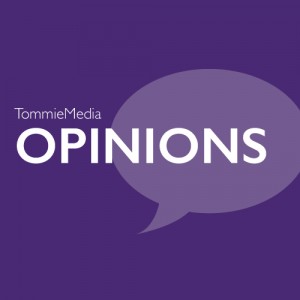Shailene Woodley, a well-known actress in the recent movies “Insurgent” and “The Fault in Our Stars,” recently said she does not consider herself a feminist, and many others are agreeing with this position. In Nylon magazine’s April issue, Woodley expressed her belief that labels divide people.
“The reason why I don’t like to say that I am a feminist or I am not a feminist is because to me it’s still a label. I do not want to be defined by one thing. Why do we have to have that label to divide us?” Woodley said. “We should all be able to embrace one another regardless of our belief system and regardless of the labels that we have put upon ourselves.”
Woodley brings up a good point in her statement. Do we need labels?
Labels can be about race, gender, sexual orientation, socioeconomic status, ability, religious affiliation, appearance, personality, quality, political affiliation, a strong belief, and so much more. They are commonly viewed as negative associations that put binding implications of people. And it’s true, labels can be used harshly and negatively, especially when people associate stigmas to the labels they are using.
Some view labels negatively because they think labels attempt to define people by putting them into categories, rather than accepting people as complex beings. As result, some people want to get rid of labels all together.
However, it would be extremely difficult to live in a world where no labels exist because we would lack essential vocabulary on how we interpret and understand each other and our surroundings.
We label objects to categorize them and identify attributes of a person or thing in an attempt to understand it. While people must pay attention to how they use labels, it is also important to note labels can be a very useful tool. Without labels to give us some common vocabulary to help us make sense of our world, it would be like reaching out into the dark and trying to describe an object only through touch.
Yes, Woodley was right when she said labels divide people into groups because, essentially labels are there to help us simplify the world around us. However, labels are just a starting point. Labels such as “friendly,” “honest,” or “lazy” can help us learn a lot about a person, but we cannot ascertain all of the knowledge necessary to fully understand the complexities of people simply through labels.
Additionally, labels can establish a sense of personal identity and community with like-minded people. In this case, the label of feminist can be used as an identifier that someone believes in equality for men and women. Perhaps Woodley does not fully agree the feminist movement or believes the label is limiting, but the fear of being labeled should not prevent someone from stating an opinion. We may not be ready to embrace each other regardless of our labels because we sometimes use them incorrectly to isolate or stigmatize people, but we should remember labels helped us form a baseline understanding of people and things in the first place.
Claire Noack can be reached at noac8702@stthomas.edu.


